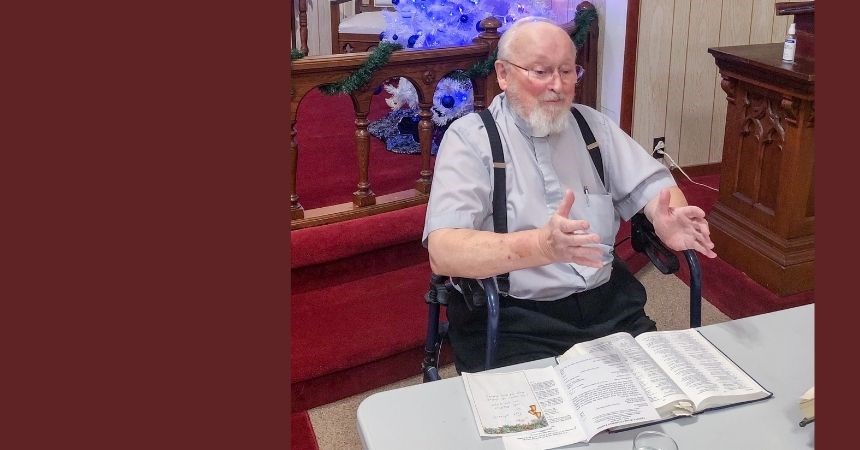Rev. Keith Smith had a plan—to finish high school and then go to college. But that’s where the plan ended.
“I got the college degree and then the rest of the pages were blank. My script didn’t go any further,” Smith said. “I came from a stable home, went to college, and so on, but in some ways, I was just as lost as the kids at Dakota Boys and Girls Ranch.”
At age 79, Smith recognizes that these struggles led him to lend his support to children at the Ranch. “The whole idea of rescuing children has a powerful, powerful grip on me.”
He admits that it took him a while to get to a place where he thought about anything but his own search for meaning.
After college, Smith had several temporary jobs before taking a full-time job at a college library in Wisconsin. At that time, he walked away from church, but eventually walked back. He spent a year each at two different seminaries; volunteered at Holden Village, a Lutheran retreat center in Washington state; worked in his parents’ business in Watertown, SD; and spent a year working at a church in Canada. In his 40s, Smith graduated from the University of Dubuque Theological Seminary in Dubuque, IA.
To graduate from seminary, Smith was required to participate in a Clinical Pastor Education (CPE) program. While working in a hospital chaplaincy program to complete the CPE requirements, the staff chaplains encouraged him to think about personal therapy, which he did by working with a clinical psychologist.
“It was life-changing. In fact, I’ve often described it as life-saving,” Smith said. “I had this mountain of grief in front of me I hadn’t resolved. God wouldn’t permit me to go into a parish if I hadn’t at least encountered and begun to do the work I suppose all of us have to do.”
Smith has been the pastor at two small Lutheran Churches in eastern South Dakota for nearly 25 years. He learned about the Ranch when a bottle of honey came in the mail with a request for the churches to participate in a Honey Sunday fundraiser.
When neither church in his two-point parish took up the challenge, Smith took the honey home.
“I didn’t think I should take the honey and not give them anything for it, so I sent a check and got on the mailing list. I still didn’t know much about the Ranch, so I called a large Lutheran church in Minot. When the secretary answered, I asked her if she knew anything about Dakota Boys and Girls Ranch. She said she did, that they were highly regarded, and that they brought the kids to worship on Sundays. So that was my invitation to get involved.”
Smith is quick to point out that the money he donates is nothing compared to the people who work at the Ranch. “You don’t have to be a saint to write a check,” he said. “The people there on the ground, the people investing their lives in the lives of the young people—they’re the ones doing the work. I can’t be one of those people, but I can plant some energy in the effort.”
Smith struggles to make peace with his mixed motives of giving.
“One of my reasons for giving is that it feels good. It makes me feel worthwhile. I’m comforted to think that even with my mixed motives, some good is going to come through the check I wrote,” Smith said. “Because of my faith in the Ranch and the work they do there, I have put Dakota Boys and Girls Ranch in my will in the hope that, at the time of my death, there will be an additional gift for the Ranch.”
“I read stories of the terrible conditions some of these kids have come up in and the shape they were in when they came to the Ranch. It’s testimony to God’s power that He can break down these barriers and help them overcome these terrible tests.”
This article was originally published in Ranch Voice: Spring 2021.
Read more inspiring stories like this and explore other issues of Ranch Voice.

